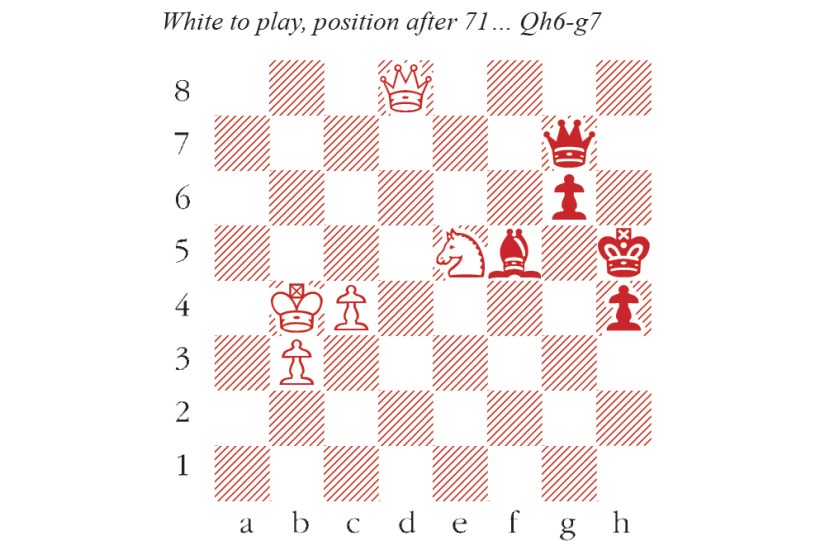Three cheers for last week’s news leak, indicating government plans to support English chess. According to Dominic Lawson, the president of the English Chess Federation (ECF) and The Spectator’s former editor, his conversation with Rishi Sunak, setting out the significant role played by chess players in the wartime codebreaking effort at Bletchley Park, proved particularly compelling. The plans include expanding chess in schools and public parks, as well as £500,000 of funding over a couple of years for the ECF to develop the men’s and women’s international teams.
As I wrote in April, chess has been starved of funds due to not being officially classified as a sport. In the late 1980s, England was second only to the Soviet Union in international competition, but our status has declined. We don’t have the pipeline of talent developed by other countries, including in western Europe. England’s men’s team now ranks 18th and our women are 24th. That’s why Malcolm Pein, ECF director of international chess, described the funding as ‘potentially transformational’. One propitious consequence of the pandemic chess boom is that England now has several outstanding players in the youngest age groups. But they will need at least five or ten years of nurture to develop their skills to international level.
There remains a misconception, perhaps rooted in the mythology of Bobby Fischer, that top chess players are exclusively geniuses or fanatics or both. What good is government funding when all you need is a laptop and Caissa’s divine gift? Nothing could be further from the truth. On top of abundant talent, all elite players have put in their 10,000 hours, which almost always included a lot of one-to-one coaching from a young age. My own high-quality instruction, particularly from Danny King and Jon Speelman, had an impact I can recognise in my games decades later.
Before Magnus Carlsen, Norway was not renowned for its chess culture. But the notion that he came out of nowhere is quite wrong, ignoring the influence of Simen Agdestein, the grandmaster chess instructor at the Norwegian College of Elite Sport during Carlsen’s formative years, who notably represented Norway in football as well as chess. Stamina and sporting discipline have long been trump cards for Carlsen.
Even the relative autodidacts require countless foreign trips to hone their skills in competition, with support from national federations, families, sponsors or patrons. An aspiring grandmaster might make a dozen trips abroad in a year, each around ten days long, with no reliable income.
World championship competitors employ teams of ‘seconds’ – grandmaster coaches who scour the vast landscape of opening variations, hunting for treasure to dazzle opponents. Powerful chess computers are their metal detectors, but it takes an expert eye to discern the gold from the tin. Thousands of man-hours are applied to this effort, but players need every edge they can get. In a similar spirit, during last year’s Olympiad in Chennai, the England team were happy to have experienced analysts to call on for help before the games. But we could assume that the strongest teams would have more resources.
So yes, funding matters. But we’re playing catch-up here. Uzbekistan, with just over half the population of the UK, took gold at the Chennai Olympiad and is reported to have a government-backed budget of around $4 million for chess each year.
Here is a defining moment from that Olympiad. After a gripping fight, India’s star player Dommaraju Gukesh blundered with 72 Nf3. Uzbekistan’s top player Nodirbek Abdusattorov played 72…Qb7+, forking king and knight and saving the match. White resigns
Got something to add? Join the discussion and comment below.
Get 10 issues for just $10
Subscribe to The Spectator Australia today for the next 10 magazine issues, plus full online access, for just $10.
You might disagree with half of it, but you’ll enjoy reading all of it. Try your first month for free, then just $2 a week for the remainder of your first year.








Comments
Don't miss out
Join the conversation with other Spectator Australia readers. Subscribe to leave a comment.
SUBSCRIBEAlready a subscriber? Log in